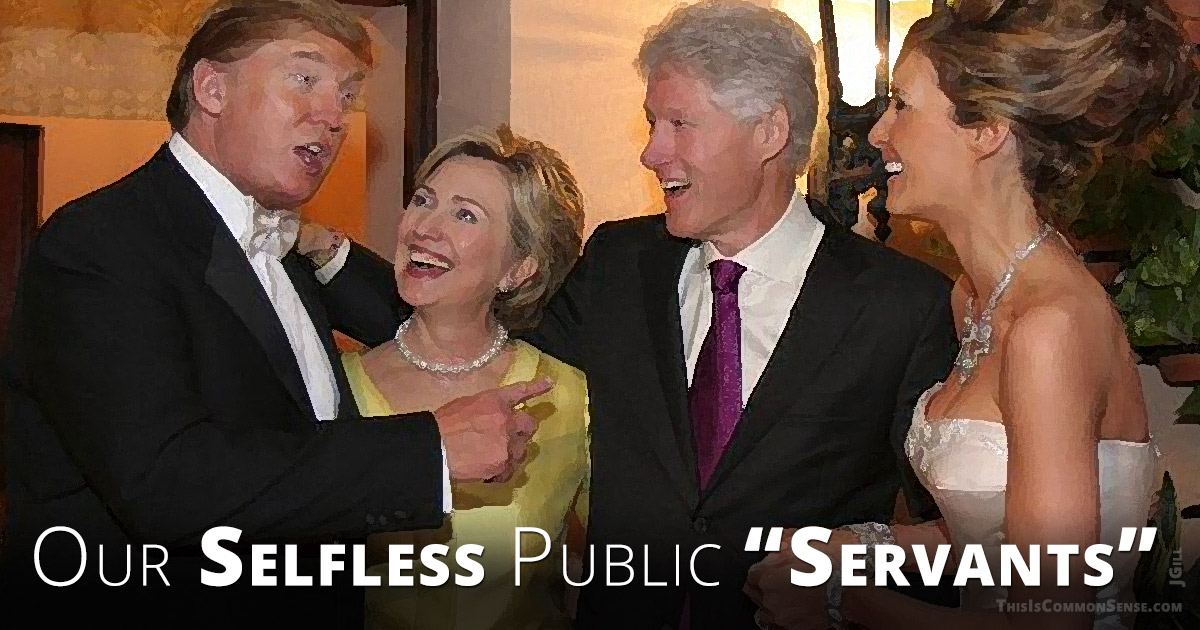In a Townhall.com column last January, I argued that politicians weren’t “stupid,” as Mr. Trump had loudly proclaimed — to few objections.
The problem is worse: too many politicians lack honesty and integrity. They’re in the politics biz for their own lucrative ends.
Six weeks ago, I declared — again, to few objections — that “Politicians Must Suffer.” Despite the provocative, sizzling-with-Schadenfreude title, my point was simple: “lavish pay, pensions and other benefits for city councilmen, state legislators and congressmen constitute a serious problem.”
“It breeds,” I added, “bad behavior when politicians line their own pockets. . . .”
Well, I’m right.
At least, I’ve got some academic back-up from a new study by Mitchell Hoffman of the University of Toronto and Elizabeth Lyons of the University of California-San Diego, entitled, “A Time to Make Laws and a Time to Fundraise? On the Relation Between Salaries and Time Use for State Politicians.”
Sounds like a fascinating read, eh?
“Using data on time use and legislator salaries, we show that higher salary is associated with legislators spending more time on fundraising,” the study’s abstract reads. “In contrast, higher salary is also associated with less time spent on legislative activities and has no clear relation to time spent on constituent services.” [Emphasis added]
While their study jives with my experience, the Wall Street Journal reports that others were surprised. Authors Hoffman and Lyons explain: “When salaries are higher, politicians face a greater incentive to get re-elected (as the value of serving in office is greater). Thus, they will optimally respond by increasing the time spent on fundraising.”
Sounds like in addition to lower pay for politicians, we need term limits, too.
This is Common Sense. I’m Paul Jacob.











